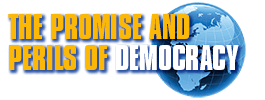Sunday’s presidential elections in Poland have left a country deeply divided between rural and urban areas. President Andrzej Duda won a narrow victory, defeating Warsaw’s mayor Rafal Trzaskowski who ran on a liberal platform. Mr. Duda, on the other hand, ran a fierce homophobic campaign. Gay men and lesbians living in Poland, Mr. Duda said, were promoting an ideology “more dangerous than communism.”
The result of Sunday’s elections left Poland deeply divided between a more liberal west and a nationalist-populist eastern part of the country. Looking at an electoral map, the division runs almost exactly among the former Prussian part of what after World War 2 would become a Poland shifted westward. Look closer, though, and a split emerges that is more between rural and urban areas than between east and west. Mr Duda won in the villages and in the countryside while Mr Trzaskowski was popular in the cities. In rural areas, Mr Duda’s agenda that combine essentially social democratic welfare state policies with a right-wing populist and nationalist stance went over particularly well with voters.
Mr Duda’s victory of another five-year term was widely viewed as a blow to liberal hopes. The populist right in Poland has been criticized for years for their attempts at interfering with the independence of the judiciary and for their attacks on minority rights. On Thursday, lawmakers in the European Parliament have called for action over ‘continuing deterioration of democracy’ in Poland. The EU parliament’s Committee on Civil Liberties, Justice and Home Affairs criticized the “continuing deterioration of democracy, rule of law and fundamental rights in Poland” under Mr Duda’s party PIS.
